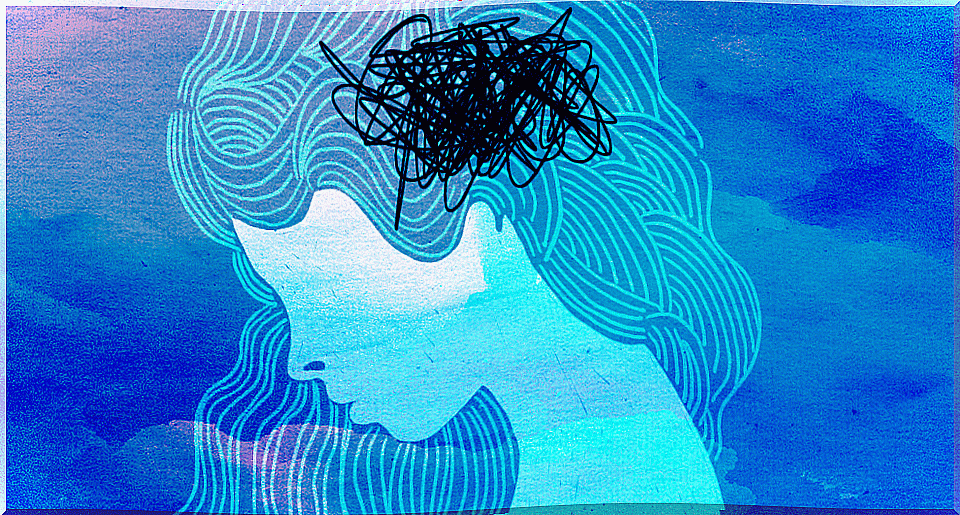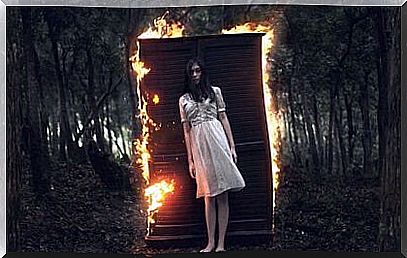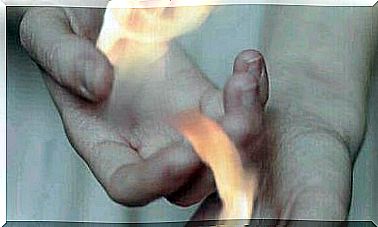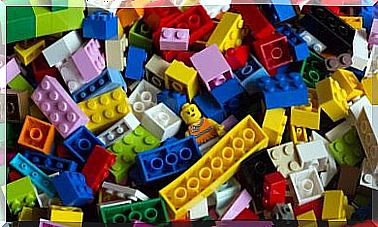Anger And Depression, How Are They Related?

Anger and depression are two realities that usually go hand in hand. The stereotype tells us that a person is depressed when they are sad, shy, and more or less encapsulated in their feelings of misery.
However, this is not the case. It’s a facet of depression, but not the only one. In addition, depression manifests itself differently depending on the temperament of each person.
Studies show that people with a tendency to get angry are also more vulnerable to depression. More precisely, it has been possible to establish a link between depression and those who have outbursts of anger or outbursts of anger.
States of anger and depression usually have a common trigger: frustration. This, in turn, stems from a desire or goal not achieved or achieved. More than what you are not getting per se, the discomfort is triggered by the lack of resources to deal with that frustration. This is almost always accompanied by low self-esteem and a past with emotional impairments.

Anger, depression and unconsciousness
From the point of view of the subconscious, anger and depression are part of the same process. You can almost tell they are equivalent. What differentiates one from the other is the object at which they are directed. While anger is turned towards something external, depression includes these same aggressive feelings, but directed towards yourself.
Anger and depression combine perversely and harmoniously with the manifestations at the same time. In anger, especially when there are attacks or outbursts of aggression, destructive behavior towards the other appears. Voice is given to words that offend, minimize or degrade others.
In depression something similar happens, but in this case the person directs the verbal abuse towards themselves. It is equally destructive for the one who focuses on others. And often, too, it is accompanied by direct physical attacks or, at least, attempted aggression. This is the case, for example, with risky behavior, in which integrity is compromised.

A vicious circle
The chain of events leading to depression usually begins with frustrated desire. Something you want, but don’t get, and maybe, in principle, doesn’t counterbalance. But if this situation of wanting and failing is repeated over and over again, a much deeper sense of frustration is created in you.
At the same time, it affects your self-confidence and lowers your self-esteem. If you don’t express all of these, this group of emotions stays with you and oppresses you. And you can get to a point where it’s going to tear you apart and break you inside.
At this point, you may feel a constant animosity towards the world. Depending on your temperament, this discomfort will result in rejection and a refusal to get involved in what surrounds you. Or the opposite: as a tendency to negatively affect what surrounds you, precisely because you refuse it. The usual thing is that the two forms of expression combine and follow each other.
Listening and accepting emotions
Anger and depression are two destructive states, both for those who experience them and for those around them. They usually lead to unnecessary conflicts and situations of high emotional intensity that alienate others. Guilt and isolation increase frustration, anger and depression.
The solution is simple and complex at the same time. It is about learning to listen to the emotions that are in us and give them the value they deserve. Failure to recognize these feelings and not let them speak is becoming a force of oppression that ends up hurting us or others.
If you feel that those feelings of sadness or anger have become a shadow, take over you, and you can’t get rid of them, you’ll probably need to speak up – or rather express – what is happening to you. Hopefully, with a professional who has the ability to help you reinterpret what is going on in your inner world. The why you want what you want and don’t get it ends up blocking you. Otherwise, anger and depression will start to dictate what happens to you.










